Participant voices

News | Speeches & statements | Webcasts | Photo & video | Side events |
Sustainable Development Goals |From where I stand| Participant voices |
Social media |Official documents
Every year thousands of activists from civil society organizations around the world come to New York to take part in the Commission on the Status of Women, the global intergovernmental body exclusively dedicated to the promotion of gender equality and the empowerment of women. Around 4,100 non-governmental representatives from more than 540 organizations participated in 2016, the highest number ever for one of the Commission’s regular annual meetings. Through short video and print interviews and photographs, a snapshot of their messages and perspectives on women and the Sustainable Development Goals.
Why do the SDGs matter to you?
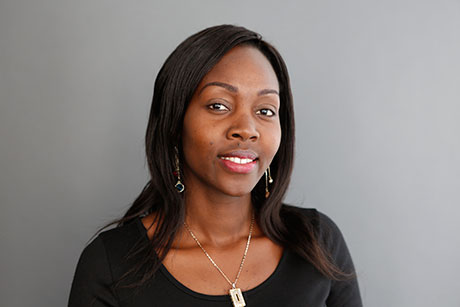
Maasai woman, indigenous women’s rights activist from Kenya, and Yvonne Hebert scholar.
“The SDGs matter as a whole to us indigenous women. We are still [struggling] with high poverty levels; illiteracy is very high in our land. We have [limited] access to water, and many young girls drop out of school due to harmful cultural practices. A girl for example who undergoes female genital mutilation and is unable to finish school, she is married off (…) and her economic empowerment is negatively affected. The SDGs will help us to develop through the elimination of poverty, and curbing negative cultural practices that are in most cases an obstacle to development.”
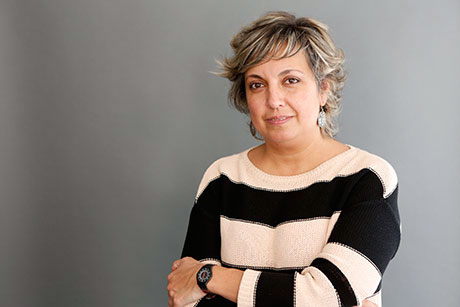
Executive Director of the Bolivian civil society organization Coordinadora de la Mujer.
“[The SDGs are important as] we now have the possibility for governments to renew their commitments but also to propose new goals for progress. They allow us to measure progress quantitatively and gradually. And, in addition to the commitments, is the possibility of defining indicators that allow us to say whether we are effectively moving towards this world we all dream of, with fewer inequalities, better living conditions, so that we can all live in peace, without hunger, without violence—and I think that is one of the possibilities we have given ourselves with this agenda for all to achieve by 2030.”
Listen to her answer in Spanish »
If the SDGs succeed, what do you want to see in 2030?
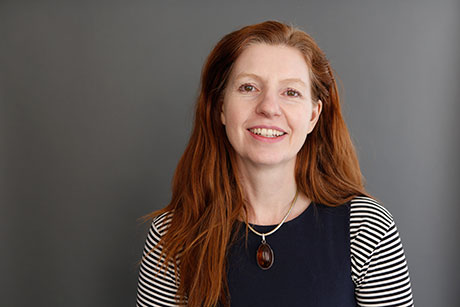
Regional Coordinator of the Asia-Pacific Forum on Women, Law and Development; member of UN Women’s Asia-Pacific Civil Society Advisory Committee.
“We would have redistributed wealth, power and resources… We would have gender justice, where women’s rights are respected across the field; where they can make decisions about their own bodies; where they participate in democracy and... local, national and global decision-making processes. We would have environmental justice ... And finally, we would have accountability. And that’s one of the key tools that the SDGs could offer us—accountability for what governments have promised their citizens now for decades.”
Priscilla Magamba Busabono
Youth advocate for women’s rights, YWCA member and a prominent civil society activist in her community in the Democratic Republic of Congo. She attended CSW60 on an Yvonne Hebert scholarship.
“I hear people talk about Agenda 2030 and the [Africa Union’s] 2063 Agenda, and I think, ‘I’ll still be around then.’ So it’s something that is important to youth like me, in our 20s. Include us in decisions… We lack fora to express ourselves. But we have a lot to do and a lot to give. Our only limits are being able to express things this way. So create exchanges for us. Ask for our advice. Dialogue with us. We’ll be able to give you ideas that are useful. Include young women’s voices as much as possible in all decision-making.”
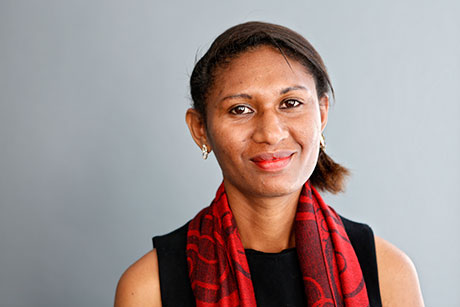
Youth volunteer peer-educator with the Young Women's Christian Association (YWCA) in Port Moresby, Papua New Guinea. She attended CSW60 on an Yvonne Hebert scholarship.
“I want to see women living in peace. I want women to feel safe when walking on the streets, without the fear of rape or sexual harassment. In Port Moresby, I still cannot walk on the streets without fearing violence. I have to ask my brother to accompany me. In 2030, if the SDGs succeed, I want to walk in my city freely, singing, without fear.”
How do you think the SDGs are going to change the lives of women and/or girls?
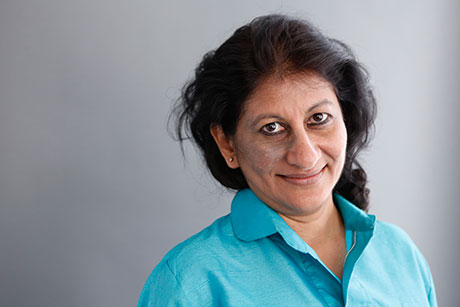
Co-director of Akshara, a non-profit women’s rights organization in Mumbai, India; local and national organizer with more than 30 years of experience.
“There is a lot of potential to challenge inequality of gender, class, and—in the context of South Asia—caste. But we have to also change institutional processes so that deep-rooted inequality is addressed. [For the SDGs to make a difference], an emphasis on implementation, and closely watching that implementation, will be critical…. I want to see a world where there is nothing that a woman feels she cannot do; no place that she feels that she cannot access; she has all the resources and opportunities to fulfil her dreams; and a world where violence against women and children is seen as unacceptable.”
Nehad Aboul Komsam
Lawyer and human rights expert, Chair of the Egyptian Centre for Women’s Rights, member of UN Women’s Global Civil Society Advisory Group, and grantee of UN Women's Fund for Gender Equality.
“The value of the SDGs is that it gives us a mechanism for monitoring, evaluation, accountability as well as a tool to exert pressure in many cases. It also allows us, through specific targets, to see: whether women’s voices are heard, or not, the benefits that reached women, the gaps and the areas where we need to work harder. Not all women must know what the SDGs are, but all women should know there is a tool through which we can monitor what is happening. The important thing is for the SDGs to actually reach women and for women to see their results.”
How will the SDGs serve to complement existing tools and help women stand up for their rights?
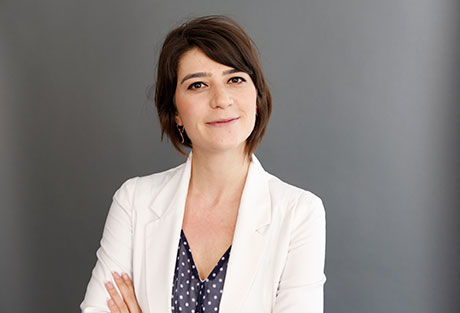
Youth and LGBT activist with KA-DER Ankara, an organization that supports women’s political empowerment in Turkey.
“I think the SDGs can be a valuable tool in line with CEDAW, the Istanbul Convention [and other international conventions]. We can’t separate our international tools from each other. The SDGs may be a good tool to strengthen the power of international conventions... Throughout the ministerial discussions, the ministers highlighted the inclusion of civil society and the private sector in the implementation of the SDGs.”
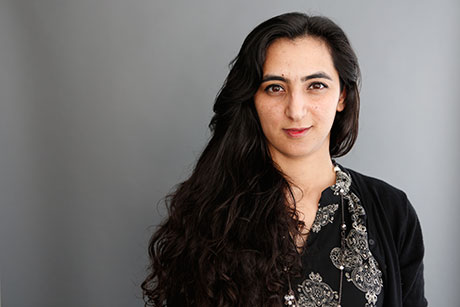
Former captain of the Afghan National Team, now project coordinator for the Cross Cultures Project Association in Denmark.
“In a country like Afghanistan, first build the women. Build their confidence and education. First make them strong, and then let them work together. They will have the confidence to stand for their rights. Women have to have to understand that they are human and they have to have the same rights as men. They have to stand for their rights.”
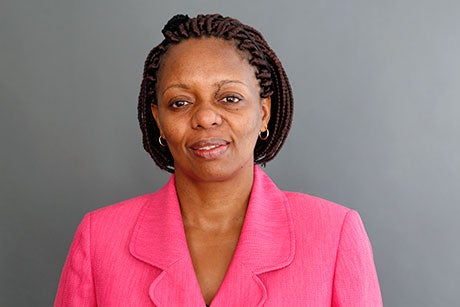
Executive Director of Forum for Women in Democracy, in Uganda, whose work focuses on women's political leadership in Africa.
“Our governments have signed up to all these commitments at the global level, at the national level. Many of us have very good laws that are just not being implemented. I think as the women, we need to come together and realize that unless we become this force to reckon with, unless we make our voice heard, the politicians, the government, won’t know that the women have spoken and do something about it.”
On which specific SDGs do you think women have a key role to play?
Maria Judite da Silva Ballerio
Indigenous woman of the Guajajajara community, Lagoa Quieta, Maranhão Province, Brazil; Political Advisor with COAPIMA (Coordination of the Indigenous Organizations of Maranhão). She attended CSW60 on an Yvonne Hebert scholarship.
“[In addition to SDG 5], given that SDG 15 directly relates to the preservation of the environment, land and ecosystems, and given our traditional knowledge and the mother-daughter relationship that indigenous women have with land, women have a key role to play. They preserve and know how to treat Mother Earth; they know how to extract what we need from her in a sustainable way, be it for health, culture or survival. The SDGs have a direct impact on these women, just as they have so much to offer, through their traditional knowledge, to help achieve the SDGs.”
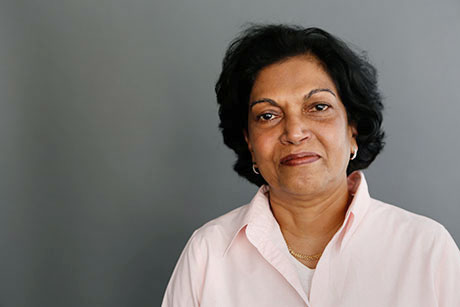
Executive Director and founder of Bangladesh Nari Progati Sangha (BNPS); an activist for 30 years, she was nominated as one of the "1,000 Women for Peace" for the Nobel Peace Prize in 2005.
“The SDGs have Goal 5 which talks specifically about gender equality… But it’s not either-or. We have to understand the cross-sectionality of gender discrimination in the economic, social, political and cultural spheres. Women and gender issues cut through all of them. All SDGs are equal in that sense. If you want to eradicate hunger, if women don’t have an equal right, an equal share of food in the family, we all know that women have a smaller share of food in the family…. No development is possible without women’s empowerment and without women’s equal opportunities.”